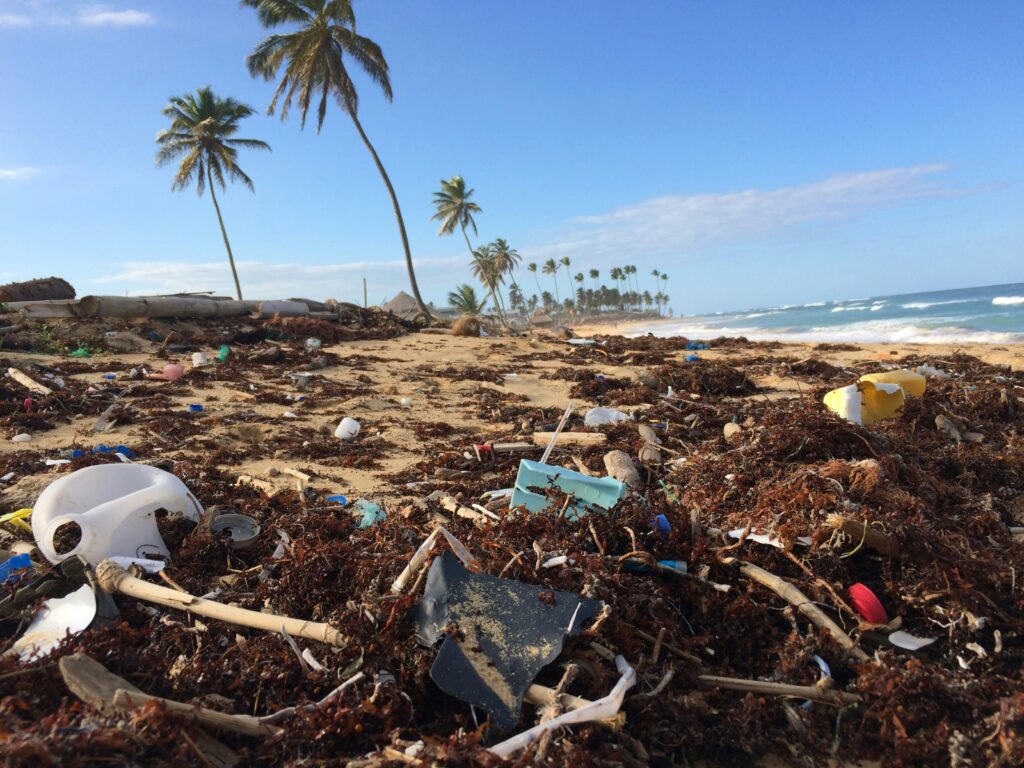
Biodiversity Sri Lanka (BSL), in partnership with ACTED, the Industrial Services Bureau (ISB), STENUM Asia, and The Energy and Resources Institute (TERI) of India, is spearheading the Promoting Long-term Approaches for a Sustainable, Transformative, and Inclusive Circular Economy in Sri Lanka (PLASTICS) project. This 48-month initiative, funded by the European Union’s SWITCH-Asia program, is revolutionising the plastics value chain by integrating Small and Medium Enterprises (SMEs) into sustainable business practices that foster economic prosperity while tackling environmental challenges.
Rethinking Plastics: A National Priority
Sri Lanka imports over 500,000 metric tons of virgin plastic annually, contributing to nearly 1.59 million metric tons of mismanaged plastic waste each year. Recognising the urgency of addressing this crisis, the PLASTICS project focuses on transforming the plastic lifecycle across Sri Lanka’s Western Province. By targeting 150 SMEs engaged in plastic production, use, and recycling, the project enhances resource efficiency, promotes circular innovations, facilitates access to green finance, and strengthens waste management frameworks.
The project aligns closely with the Sri Lankan Government’s National Action Plan on Plastic Waste Management 2021–2030, which emphasszes the need to transition from a linear economy to a circular one. This shift is built on the principles of reducing, reusing, and recycling plastics while implementing Extended Producer Responsibility (EPR) schemes. As part of this effort, BSL is leading the expansion of the national plastics EPR Portal, which will play a crucial role in ensuring producer accountability and improving waste traceability through digital monitoring systems.



Milestones Achieved So Far
The PLASTICS Project Consortium has made significant progress in building momentum for a circular plastics economy. A key focus has been engaging a diverse group of stakeholders, including SMEs, entrepreneurs, policymakers, and financial institutions. Through workshops and training sessions, businesses have gained insights into sustainable practices, circular product design, and ways to integrate eco-friendly alternatives into their operations.
The project has also actively supported SMEs with critical asset provisions to strengthen their operational capabilities. Equipment such as baler machines for PET bottle compression, shredder machines for plastic flake production, and crusher machines for reducing plastic into fine granules have been distributed. This investment ensures that SMEs can process and manage plastic waste more effectively, fostering a sustainable business ecosystem.
Recognising the financial barriers that often hinder SMEs from adopting green practices, the project has introduced initiatives to improve access to green financing. A Digital Green Finance Toolkit has been developed to bridge knowledge gaps and empower financial institutions to support eco-friendly business models. Practitioner forums and collaborative platforms are building confidence among investors and businesses in financing sustainable plastic waste management solutions.
Public-private collaboration has been a cornerstone of the consortium’s approach. By fostering dialogue between industries, policymakers, and regulatory bodies, the PLASTICS Project Consortium has helped develop robust monitoring frameworks that support transparent and effective plastic waste management across industries. The innovative 3Zero House initiative, launched in Colombo, Vavuniya, and Batticaloa, serves as an incubator for entrepreneurs and businesses committed to sustainability. Through a dedicated incubation program, eight pioneering businesses – such as ALKE, Ample, Solocycle, and Teshvo – are developing scalable solutions in areas like alternative packaging, sustainable fashion, and eco-friendly building materials.
Why the Private Sector Should Get Involved
The PLASTICS project is creating new business opportunities while addressing environmental challenges. Companies that adopt circular economy principles gain access to innovation and increased competitiveness in both local and international markets. Businesses integrating sustainable product design and packaging will be better positioned to comply with upcoming regulations and attract environmentally conscious consumers.
Furthermore, the expansion of green finance accessibility presents an opportunity for companies to invest in sustainable technologies and business models. Financial incentives and tailored funding solutions are being introduced to help SMEs transition toward low-impact manufacturing processes, offering a major advantage for businesses looking to future-proof their operations against regulatory changes while reducing long-term costs through resource efficiency.

Scaling Up for the Future
Building on its success, the PLASTICS project is set to scale up circular innovations by supporting SMEs in adopting advanced technologies that minimize plastic waste and promote the use of sustainable materials. The consortium is actively working alongside the Central Bank of Sri Lanka and the EU Delegation to Sri Lanka and the Maldives to promote green finance frameworks that align with global sustainability goals. Recent strategic briefings on the delivery of green financial services have emphasized the importance of integrating environmental risk assessments into financial processes, reinforcing the consortium’s efforts in advancing circular economy solutions and influencing national financial policies.
As Sri Lanka deepens its commitment to a circular economy, policy frameworks must evolve to support long-term sustainability. The consortium will continue working closely with policymakers to advocate for stronger regulations that facilitate EPR schemes, incentivize sustainable product design, and promote responsible plastic use across industries. Community engagement and awareness campaigns will also be vital in educating consumers about the importance of reducing plastic consumption and supporting sustainable alternatives.
Shaping the Future of Plastics in Sri Lanka
The work of the PLASTICS Project Consortium stands as a testament to the power of BSL’s leadership in promoting collaborative innovation and driving corporate sustainability as well as environmental responsibility. By fostering innovation, strengthening policy frameworks, and equipping businesses with the tools to integrate circularity, the consortium—led by its esteemed partners—is setting the stage for a future where economic growth and environmental stewardship go hand in hand. This initiative not only addresses the pressing issue of plastic pollution but also creates new opportunities for sustainable development and positions the private sector as a leader in Sri Lanka’s green transformation.



